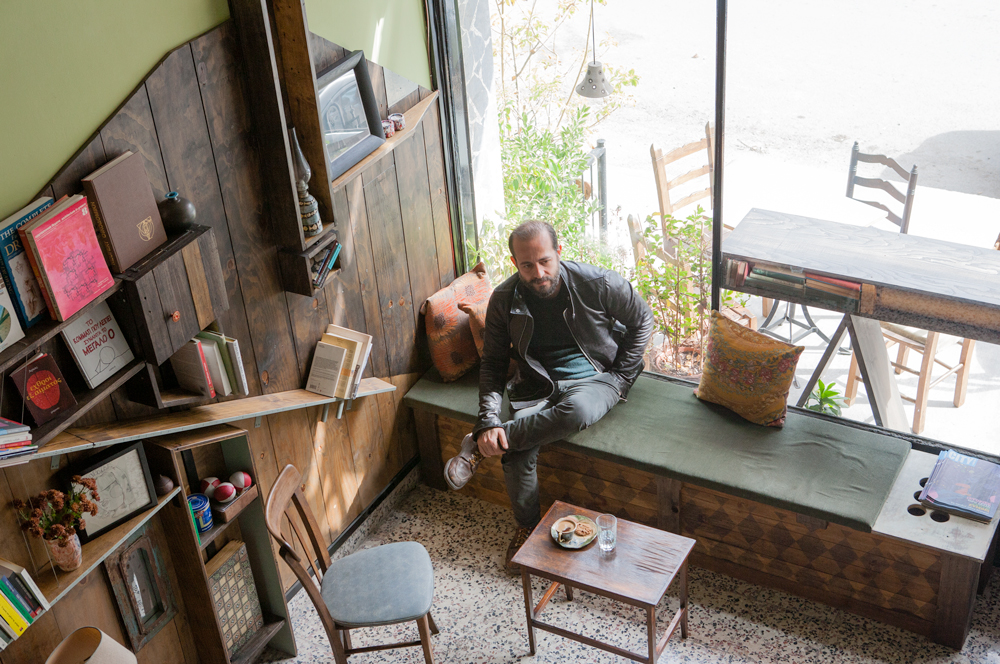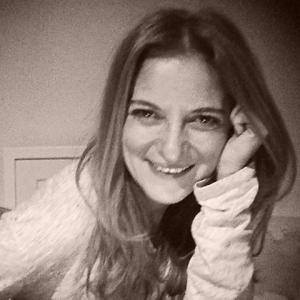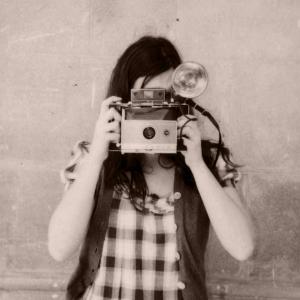Cypriot Michael Anastassiades's homecoming show
Reload The Current Page
-
Michael Anastassiades
Photo © Stelios Kallinikou
-
Photo © Stelios Kallinikou
-
Photo © Stelios Kallinikou
-
Photo © Stelios Kallinikou
-
Photo © Stelios Kallinikou
-
Photo © Stelios Kallinikou
-
Reload the Current Page exhibition
Photo © Stelios Kallinikou
-
Photo © Stelios Kallinikou
-
Photo © Stelios Kallinikou
-
Photo © Stelios Kallinikou
-
Michael Anastassiades
Photo © Eleni Papadopoulou for L'AB/Pamono
The last time Michael and I met, he was busy preparing new pieces for a major exhibition in Cyprus. It was two months ago, and he had come by my house—as old friends do—to chat about his creative process. He spread his drawings and photos out on the long wooden table in my living room and began to explain the motivation behind his latest project—a conceptual collection that pays homage to our native homeland.
“I wanted to create something from the beginning,” he said, which I understood to mean that he was severing the strings attaching him to previous works, starting with a clean slate. His desire was to give shape and form to the anxieties but also the hopes of the time we’re living in; a time when Cyprus is coming to grips with the largest upheaval it has faced since the war in 1974. The surge of the financial crisis has left 50,000 people unemployed in its wake, and their daily struggle for survival is dictated by the measures imposed by the ensuing economic memorandum. As our fellow Cypriots are forced to forge a new way ahead, Michael felt this was the right moment to bring to light the essential lessons resulting from his own personal journey. Experience had shown him, he noted, that confronting the unknown is a far surer path to awareness than resolutely clinging to the familiar.
For our next encounter, Michael and I meet for a chat and a walk-thru of the new exhibition. “Reload the current page”—the show’s title—is emblazoned on the wall of the Point Centre for Contemporary Art, a promising space that opened about a year ago in Nicosia.
As we stroll through the gallery in contemplative silence, he glances at me from the corner of his eye to gauge my reaction to the personal nuances resonating through the objects, referencing landscapes, symbols, and definitions that not only shaped the way we grew up, but also set the limits of our horizons. “So,” I begin, and he smiles at me. “This is more than an exhibition; you’re inviting people to contemplate, aren’t you?”
Michael Anastassiades: That’s right. You see, I’ve got the vantage point of distance: watching from the outside, and having lived abroad for so long, I find it easier to observe the reality of life here with a certain degree of detachment and neutrality. I can regard the effects of the crisis without anger, even as it turns people’s lives and hopes inside out. I just feel sorry for the people I love, watching them struggle.
Eleni Xenou: What findings have you arrived at?
MA: I feel that what’s happening in Cyprus today is a positive thing. It’s the beginning of a true awareness, forcing us to re-evaluate the way we see things, and the way we filter events.
EX: So, in a way, it’s holding up a mirror for us?
MA: Exactly. It’s sad, certainly, to let the worst happen before taking a look at yourself, and to wait for what amounts to punishment before redefining your values. Cypriots have tremendous qualities as people, and it’s a shame that they only display them once they’ve been knocked down.
EX: Why do you think this is happening?
MA: Possibly, we were drawn into a one-dimensional and selfish way of thinking that narrowed our focus.
EX: What are you hoping to achieve through this exhibition?
MA: It’s not my intention to make a political statement. These pieces are an expression of the way I see the current Cypriot reality, but in relation to my own personal journey. It’s the first time I’ve felt able to enter into this kind of dialogue. It’s the first time I’ve found a point of connection; and that point is here and now, at a time when we’re collectively feeling vulnerable.
EX: So your objects present a portrayal of your own point of view of current events?
MA: That’s precisely it. They portray my personal view based on my own observations and stimuli. And now that a cycle has come to an end, I felt it was the right time to present this exhibition.
EX: What do you mean by “a cycle has come to an end?”
MA: Well, the cycle of facing the unknown is now over. I mean, it’s a process: trying to prove to yourself that you can confront the unknown and emerge as a person and an artist. Once you’ve reached that point of recognition, you discover the hidden power of all those experiences you’ve carried with you from the place where you grew up. But first you need to find a way to connect to the unfamiliar in order to be able to appreciate the power of the familiar.
EX: Which realizations have led to the closing of this cycle?
MA: Realization comes when, at some point, the images, landscapes, and symbolism you grew up with settle down inside you and everything makes sense, as if it’s all embroidered with the same thread. And with that realization comes the feeling that an image you’ve harbored for years—never quite knowing where or how to place it—finds a way to be expressed, not externally, but rather in relation to your own personal balance.
EX: Can you give me an example of such an image?
MA: There are so many . . . We grew up in the time just after the war, and we experienced first-hand the ways in which society was repaired and the landscape was altered—and the symbolism weighed heavy on our shoulders. Of course, each person carries this load in their own way, but at some point they have to process it and put it away so that they can move on and start healing. This is essential for development, so that powers of observation and judgment can be restored.
EX: What does this process entail?
MA: Critical thinking and self-belief.
EX: When you refer to Reload, you’re talking about a process of sorting and tidying?
MA: It’s about putting things away, filtering them; and it’s about the need for order. We need to take a step back from the issue, to take a deep breath, and to view things, and ourselves, in a different way so that we can find a new beginning based on realization and awareness.
EX: I suppose it’s not a coincidence then that you’ve used financial terminology when naming some of your pieces?
MA: It’s not at all coincidental, since the financial situation has been at the forefront for so many years, first on the way up and then on the way down. But rather than clarify the meaning of every object, I’d like to think that each person can gain a different interpretation of each piece, and can identify their own personal images and references.
EX: But each piece essentially carries a wish for a “reload?”
MA: Yes, in the sense of banishing the fear of starting over, and of not allowing our memories to fade so easily. Cyprus endured a much harsher destruction in ’74, and yet people found the strength to go on. Those same people are now clinging to the memory of fear and strife and they’ve forgotten that they were able to confront catastrophe in the past. This is what we need to remember. We each have the strength to get over things as long as we have faith in something beautiful, and we should appreciate the fact that beauty lies within as well as on the outside. This time, it seems we’ve had to face ugliness again in order to go looking for that beauty.
EX: So would someone strolling through your exhibition today catch a glimpse of that little boy named Michalis who lived and grew up here?
MA: [smiles] Maybe. Perhaps you could say that that little sphere could be me. A little sphere amongst the large sculptures, which are big but not scary—unlike all those symbolic images of our childhood, which certainly had the power to scare us from time to time.
Reload the Current Page is on view at Point Centre for Contemporary Art in Nicosia, Cyprus through April 26, 2014.
-
Text by
-
Eleni Xenou
Always up for an adventure, Eleni loves discovering and sharing the unique realities of her diverse interview subjects. The Cypriot works for LiFO and Kathimerini, among others, and recently published a short story collection, Once Upon an April.
-
-
Images by
-
Stelios Kallinikou
Stelios’s photography ranges from architectural and portrait work to advertising and fashion. Since 2009, the Cypriot-born photographer has participated in multiple exhibitions and collaborated with clients across the globe.
-
-
Images by
-
Eleni Papadopoulou
Eleni has five cameras, two dogs and a cat, and lives in Nicosia, Cyprus.
-












 Eleni Xenou in conversation with Michael Anastassiades
© Eleni Papadopoulou for L'AB/Pamono
Eleni Xenou in conversation with Michael Anastassiades
© Eleni Papadopoulou for L'AB/Pamono
 Michael Anastassiades at Prozak Café
© Eleni Papadopoulou for L'AB/Pamono
Michael Anastassiades at Prozak Café
© Eleni Papadopoulou for L'AB/Pamono


